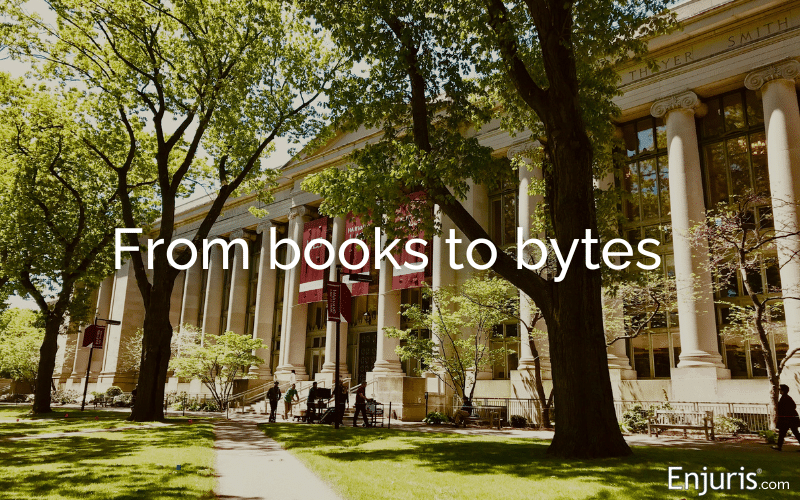
According to a study completed by the Institute for the Advancement of the American Legal System, 66 percent of the population experienced at least one legal issue in the past four years, with only 49 percent of those problems having been resolved.
The Harvard Law School has taken a significant step towards bridging this gap.
Through its Caselaw Access Project (CAP), the institution has made nearly seven million court cases, spanning over 360 years of United States caselaw, available online.
This unprecedented access democratizes legal resources and marks a pivotal moment in the intersection of law, technology, and public access.
The Caselaw Access Project (CAP)
The seed for CAP was planted in 2015 when Harvard Law School teamed up with Ravel Law, a legal research and analytics firm. This partnership had the lofty goal of leveling the playing field by making all published U.S. court decisions freely accessible in a consistent and digitized format.
“It’s important for everyone to have access to the law of the land.”
Jack Cushman, CAP director
This meticulous process involved de-binding and scanning 40,000 books at an astonishing rate, ensuring that these culturally and historically significant documents were preserved for future generations.
Unsurprisingly, CAP relied on the support of many people at the Harvard Law School Library, the law school, and from across the University.
A treasure trove for the public
CAP is a searchable database that houses decisions from the federal and state courts of the U.S., dating back to 1658. For legal scholars, students, pro se litigants, and even curious laypeople, this archive offers a goldmine of legal history and precedents.
You can access CAP directly by clicking on this link.
The significance of CAP extends beyond the digitization of court cases. It underscores a broader theme: the importance of access to legal information. In today's world, where legal assistance can come with a hefty price tag, resources like CAP empower individuals to navigate the legal landscape, whether they're pursuing legal claims without a lawyer or simply seeking to understand the legal framework that governs their lives.
The landscape of legal aid
While CAP is an important step in improving access to justice, the database doesn’t eliminate the need for an attorney.
Fortunately, injury victims often have the option to retain legal representation on a contingency fee basis. This arrangement ensures that you only pay attorney fees if your case succeeds, thereby making legal services more accessible to those seeking justice.
What’s more, there are a number of free or reduced-cost legal services available depending on the nature of your case and your socioeconomic status. These include:
- Legal aid organizations: Funded by the Legal Services Corporation (LSC), these organizations aim to provide equal access to justice across all states. They support 132 legal aid entities, offering services to those who qualify based on income. A free search tool on the LSC website helps locate local legal aid.
- Law school clinics: At the majority of ABA-approved law schools, clinics staffed by law students and supervised by professors provide free legal services. While these clinics address a broad range of legal issues, access to their services usually depends on meeting certain financial criteria.
- State bar associations: Every state has a bar association that provides numerous resources, including legal information and referral services.
- Small claims courts: While not entirely free due to filing costs, small claims courts offer a viable option for direct legal recourse without the need for an attorney.
- Initial consultations: Most attorneys offer free initial consultations, allowing individuals to ask legal questions without commitment.
The Caselaw Access Project by Harvard Law School represents a monumental step towards making the law more accessible to the public, bridging a significant gap highlighted by recent studies on access to justice.
By digitizing nearly seven million court cases, CAP has not only preserved a vital part of legal history but has also opened up a treasure trove of legal resources to scholars, students, and the general public alike.
This initiative, along with the availability of various free and reduced-cost legal services, underscores the growing importance of ensuring that access to legal information and assistance is wide-reaching, democratizing the ability for individuals to navigate the legal system with greater ease and confidence.
